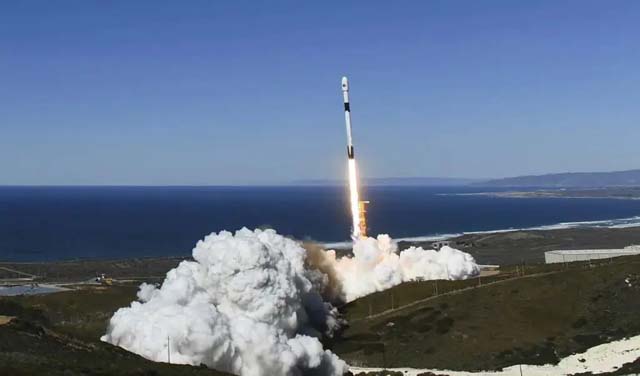
SEOUL, Aug 14, 2024 (BSS/AFP) - South Korea's first home-grown military spy satellite is ready to begin its "full-fledged" mission of monitoring the North, Seoul's arms procurement agency said Wednesday.
The satellite, launched from the Vandenberg Space Force Base in California in December last year, is part of an intensifying space race on the Korean peninsula. Pyongyang claimed it launched its own military eye in the sky a month earlier that year.
Since its launch, South Korea's reconnaisance satellite has undergone operational tests in space and this week had its "combat suitability" approved by the defense ministry.
It will now being its "full-fledged" mission, which involves capturing "images of desired areas (of the North) at their preferred times", the Defense Acquisition Program Administration (DAPA) said in a statement.
The satellite is "equipped with the capability to precisely analyse various targets through world-class resolution," it added.
Nuclear-armed North Korea's November satellite launch, which Seoul claims was aided by Moscow in exchange for supplying weapons for Russia's war in Ukraine, drew international condemnation.
Pyongyang is barred by successive rounds of UN resolutions from tests using ballistic technology, and analysts say there is significant technological overlap between space launch capabilities and the development of ballistic missiles.
Shortly after its launch, the North said its satellite was providing images of major US and South Korean military sites -- but Seoul Defence Minister Shin Won-sik said in February that the Malligyong-1 satellite appeared to be "orbiting without activity".
Seoul has said it plans to launch four additional spy satellites by the end of 2025 to bolster its reconnaissance capacity over the North.
DAPA said Wednesday that Seoul is also developing a microsatellite system to detect early signs of unusual activities in the North and to provide early warnings.
"We will strive to maximise the capabilities of our independent surveillance and reconnaissance assets to maintain an overwhelming advantage over the North Korean satellite," the agency said.